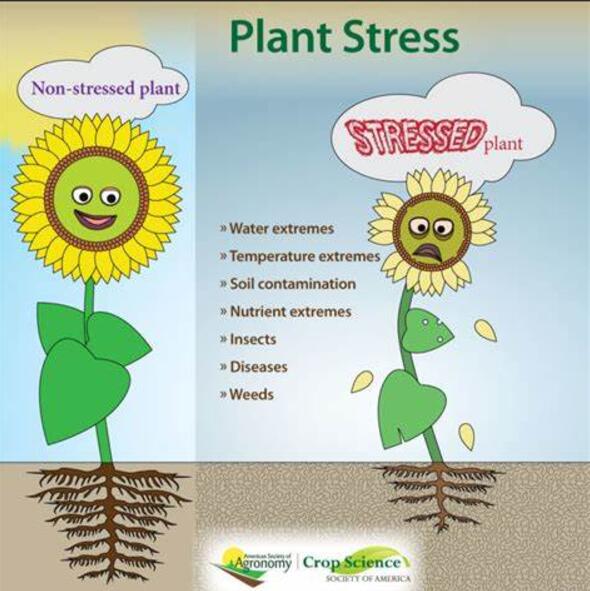Deciphering the role of metabolites and phytohormones in plant resilience to drought and herbivory
IF 6.8
Q1 PLANT SCIENCES
引用次数: 0
Abstract
Climate change is expected to result in increased variability in precipitation and more frequent outbreaks of insect pests. Thus, it is important to understand how plant-environment interactions are affected by both abiotic and biotic stresses. Water is essential for plant growth, development and interactions with other organisms, including insects. This review synthesizes current studies on the impact of drought and herbivore defense mechanisms and associated metabolic changes in plants. Severe drought can enhance plant tolerance to herbivores by promoting escape strategies whereas mild or intermittent drought may benefit insects by increasing nutrient availability. We discuss how plants adjust their metabolism to mitigate the effects of combined stresses. We further highlight the role of hormonal signaling pathways, such as abscisic acid, jasmonic acid, salicylic acid and ethylene in coordinating plant responses. Research on metabolic changes accompanying hormonal crosstalk involved in managing multiple stresses is still emerging. The available evidence suggests that the outcome of drought and herbivory varies depending on factors such as stress intensity, duration, plant-herbivore species, and insect-feeding guilds. We propose open questions and anticipate further advances in molecular understanding of plant resilience to combined stresses such as drought and herbivory in the near future.
求助全文
约1分钟内获得全文
求助全文
来源期刊

Plant Stress
PLANT SCIENCES-
CiteScore
5.20
自引率
8.00%
发文量
76
审稿时长
63 days
期刊介绍:
The journal Plant Stress deals with plant (or other photoautotrophs, such as algae, cyanobacteria and lichens) responses to abiotic and biotic stress factors that can result in limited growth and productivity. Such responses can be analyzed and described at a physiological, biochemical and molecular level. Experimental approaches/technologies aiming to improve growth and productivity with a potential for downstream validation under stress conditions will also be considered. Both fundamental and applied research manuscripts are welcome, provided that clear mechanistic hypotheses are made and descriptive approaches are avoided. In addition, high-quality review articles will also be considered, provided they follow a critical approach and stimulate thought for future research avenues.
Plant Stress welcomes high-quality manuscripts related (but not limited) to interactions between plants and:
Lack of water (drought) and excess (flooding),
Salinity stress,
Elevated temperature and/or low temperature (chilling and freezing),
Hypoxia and/or anoxia,
Mineral nutrient excess and/or deficiency,
Heavy metals and/or metalloids,
Plant priming (chemical, biological, physiological, nanomaterial, biostimulant) approaches for improved stress protection,
Viral, phytoplasma, bacterial and fungal plant-pathogen interactions.
The journal welcomes basic and applied research articles, as well as review articles and short communications. All submitted manuscripts will be subject to a thorough peer-reviewing process.
 求助内容:
求助内容: 应助结果提醒方式:
应助结果提醒方式:


